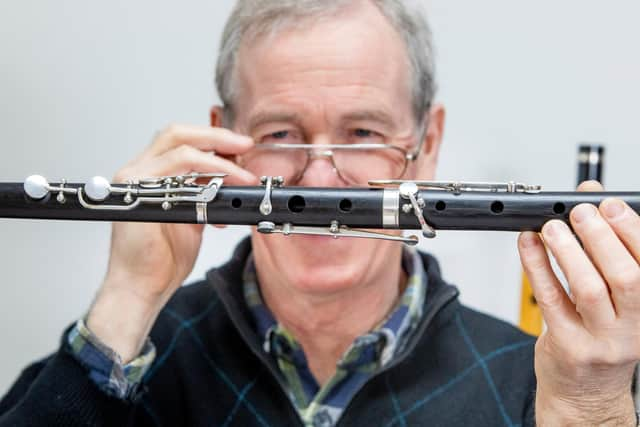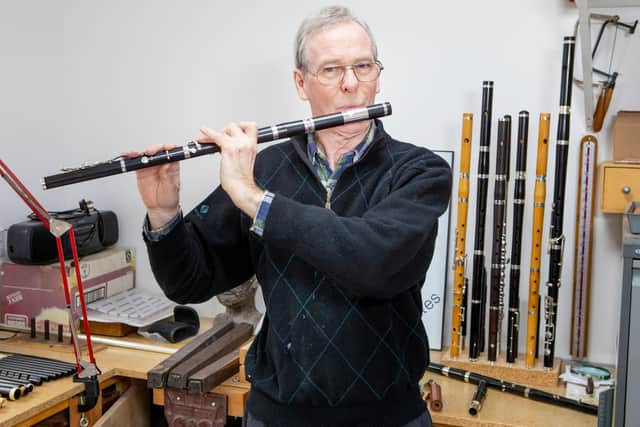Endangered species: George is Scotland's last wooden flute maker
and live on Freeview channel 276
George, 68, has two workshops - one in Bo’ness and another in Stirling - where he meticulously crafts his instruments by hand.
After graduating from college, aged 22, he moved to Ireland and then Bavaria, Germany where he learned the ropes of woodwind making working at a recorder manufacturer.
Advertisement
Hide AdAdvertisement
Hide AdDad-of-two George said: “I played the flute and at 16 I started working and going to college studying engineering and put the two together.


“There was a lack of good quality wooden flutes. Most were made in the 19th century so there was a bit of an opening for remaking.”
Following the technical specifications of pioneering Edinburgh flute maker John Mitchell Rose, George began crafting his own instruments in 1978. Over the last 42 years, he has made more than 1000 flutes.
George has sent his handcrafted instruments all over the world, selling some for more than £4000, and has made flutes for British rock band Jethro Tull’s guitarist, Ian Anderson, and jazz saxophonist Tommy Smith.
Advertisement
Hide AdAdvertisement
Hide AdIt can take George up to four weeks to make a flute, but the preparation of the wood can take several years, while the elegant silverwork and headjoints can take weeks to craft.


George said: “We leave the wood for a year to dry then we rough train and bore it, putting a hole all the way through. Then we second train it, finish train it, then use it to make a flute.
“It can take two to three weeks to do the silverwork, and we also make wooden headjoints which are very sought after by classical players.”
George is now one of less than ten wooden flute makers left in the UK, and the only one in Scotland.
Advertisement
Hide AdAdvertisement
Hide AdHe hopes someone will take over the business when he eventually decides to hang up his tools.
“I hope it continues because there’s an immense tradition of flute making in Scotland, going back to the 17th century. Who knows what the future holds.”